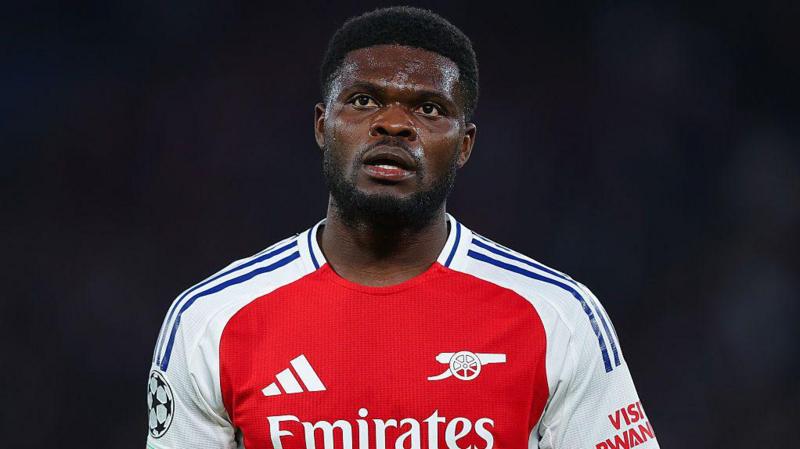Arteta Confident: Arsenal's Handling of Partey Situation Flawless!




Arsenal's manager, Mikel Arteta, recently addressed the media regarding the club’s handling of the situation involving their former midfielder, Thomas Partey. The Ghanaian international was under police investigation for multiple counts of rape but continued to play for the club during the initial stages of the investigation. This situation has sparked a conversation about the ethical responsibilities of sports organizations and their handling of serious allegations against their players.
Arteta assured the public that Arsenal had adhered to all proper procedures once they were made aware of the allegations against Partey. According to Arteta, the decision to allow Partey to continue playing was based on the information available at the time and in line with legal advice. The club took significant steps to ensure that their actions were both legally compliant and ethically responsible.
The Arsenal manager highlighted that the club's priority is to respect the legal process and the principle of 'innocent until proven guilty.' However, he also noted the importance of balancing this with the welfare and rights of all parties involved. "We have to respect the process and ensure that we do not make judgments until all facts are known," Arteta stated.
Thomas Partey, who joined Arsenal from Atlético Madrid in October 2020 for a fee reported to be around £45 million, was initially a significant signing for the Gunners. Known for his robust playing style and versatility, Partey quickly became an integral part of the team. However, the allegations against him created a challenging situation for the club, requiring careful navigation of legal, ethical, and public relations considerations.
The responses from Arsenal and Arteta could be seen as part of a broader trend in sports where teams are increasingly having to deal with legal issues involving their players off the field. These situations pose complex challenges for sports organizations, particularly in high-profile leagues like the English Premier League, where the actions of players and teams are intensely scrutinized by both the media and the public.
In recent years, there has been a growing expectation for clubs to take proactive roles in managing players' conduct off the pitch. This is partly due to increased awareness and sensitivity around issues of assault and harassment, influenced by movements such as #MeToo. Football clubs, therefore, find themselves balancing between supporting their players and distancing themselves from inappropriate behaviors.
Arsenal’s handling of the Partey situation mirrors several similar incidents in sports, where clubs have had to decide whether to suspend players during investigations or allow them to continue playing until a legal resolution is reached. Each decision brings potential backlash as well as support, depending on public sentiment, the nature of the allegations, and the visibility of the player involved.
As the legal process concerning Thomas Partey continues, Arsenal and other football clubs will likely remain under scrutiny regarding how they address serious allegations against their players. These scenarios serve as critical touchpoints for discussions about morality in sports, the responsibilities of sports organizations, and the rights of individuals involved in legal disputes.
Arteta's comments reflect an attempt to navigate these complicated waters with a sense of fairness and adherence to legal protocols. As the situation develops, it will undoubtedly provide further insights into how sports teams manage the balance between player conduct, legal issues, and public expectations in the modern sporting environment. Throughout, the Arsenal community and the wider football world will be watching closely, aware that the outcomes could have lasting implications for the sport.